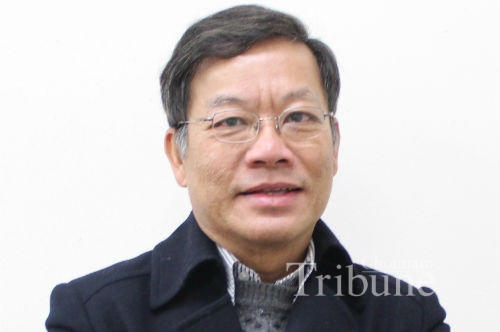에너지자원공학 교육의 국제화
The reliable access to energy and raw materials is vital for Korea as the country does not have own resources to ensure their adequate and in-time demand by the industry. Korea’s new drive in developing own energy and mineral resources overseas has been the response followed by the government and major conglomerates to address this issue. As a result, several energy and mineral resource projects have recently been developed by Korea in several countries, notably in Mexico, Chile, Australia, Kazakhstan, etc.
The training of Korean engineers to acquire other skills apart from their technical specialisations to support this new direction of operation has become more critical than ever been. Not only that Korean engineers working at mining operations overseas have to use their technical expertise in geology, mining and mineral processing to address day-to-day issues, they also need to have skills in local people management and an awareness of cultural sensitivity in a foreign environment. Issues such as respect of the traditional land ownership and sensitivity toward Aboriginal’s “sacred sites” faced by Australian mineral resource development companies would be novel for Korean counterparts.
Realising these important issues and providing appropriate training for graduates in energy and resource engineering are critical for the success of the Korean mining industry overseas. Training in technical specialisations alone is not enough for students to enter the energy and mineral resource development workforce, especially when they have to work in projects overseas. Of course a good knowledge of a local environment only comes with experience when an engineer lands in a foreign country. However preparations for students to have some basic understanding of the local issues before they depart from Korea for their overseas posting would be ideal and considered not being too excessive. The “internationalisation” approach in training in energy and mineral resource engineering to cater for students’ minimal awareness of these issues is not far off from the reality Korean companies are facing overseas.
The training in energy and mineral resource engineering at CNU does take the above issues into account. Apart from learning technical components, students have been trained in resource development and project evaluation which cover aspects of cultural sensitivity, economic benefit, environmental and corporate social responsibility vitally required when working in projects overseas. The training is not unique in this field as most universities in the UK, USA and Australia have dealt with these issues as a requirement from their more matured global mining industry. A modern resource engineer these days is also a responsible environmentalist and social scientist. He/she needs to deal with the day-to-day technical operation in the mine and at the same time be aware of the social and environmental issues of the local community in which their operation co-exists.
It is heart-warming to see the generous support of the Korean government and resource companies for the above “internationalisation” training. The Korean Energy and Mineral Resource Education (KEMREP) program, in operation over the last few years, has been providing valuable financial support for a dozen universities including CNU to conduct training in energy and resource engineering disciplines. Students have been sent on field trips and training courses in Australia, Vietnam, Indonesia, etc. to familiarise with mining operations overseas and to raise an awareness of local cultural issues.
The continuous build-up of technical expertise and internationalisation skills in energy and mineral resource development is in progress for the benefit of the industry. With this background hopefully Korea will be on track to become a major resource development country in the future.

By Tam Tran, Professor, Department of Energy & Resource Engineering

